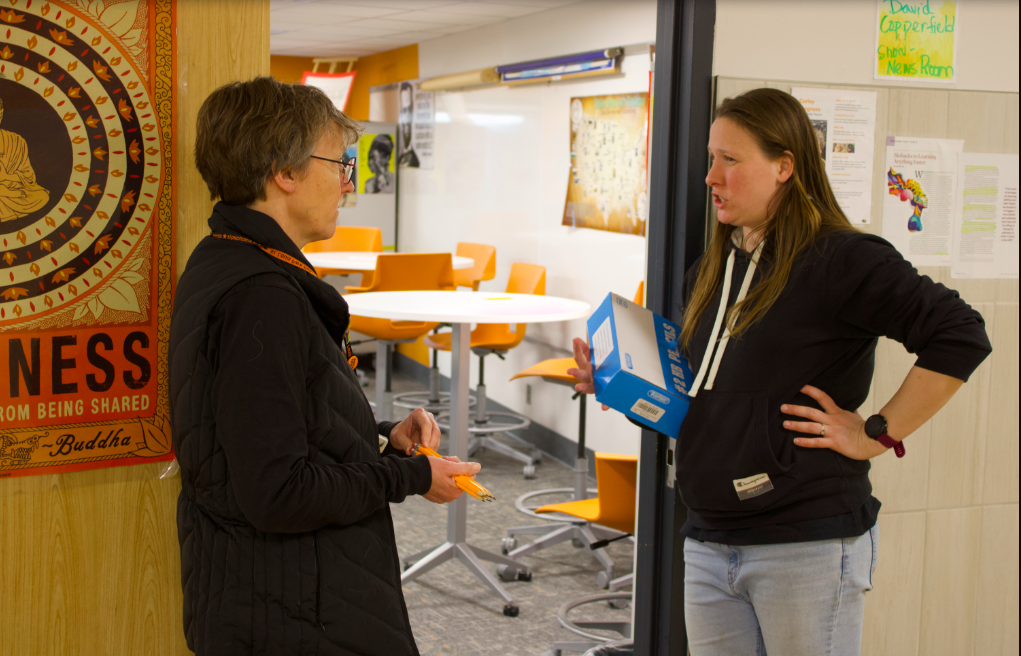As AP (Advanced Placement) tests are fastly approaching, many students are bombarded with stress for their tests and find their free time consumed by studying and preparation. These tests can impact a student’s chances of getting into certain colleges, as well as possibly being considered for college credit if they score high enough. Because there is only one test for an AP class every year, students and schools put a lot of time and energy into scoring well on these tests.
Senior James Dwyer said the materials given to him by his teachers are usually more than enough to study for his AP tests, as well as YouTube videos about his class. According to Dwyer, he likes to start his studying with the Princeton review books a month before the tests before doing the assigned work.
“I like to start studying a month before the test,” Dwyer said. “I use the materials given to me by my teachers, youtube videos like Heimler’s History and the Princeton review books.”
Many students end up with a lot of stress, worrying about whether they have done enough to be ready for the AP test. AP Calculus AB teacher Erik Ahlquist said, in his classes, students shouldn’t worry as much, as he has been preparing them for the AP test since the class first started.
“The way I teach the class, we are always preparing for the AP test,” Ahlquist said. “We start on day one.”
A lot of freshmen are taking an AP test for the first time and don’t know what they should be doing to prepare. Freshman Tybur Augustine said he is confused about how much he should study for the AP Environmental Science test, as he has never taken an AP test before.
“I want to know how much more I should be studying than I am now,” said Augustine. “Right now, I am just using the textbook, and I am going to buy a review booklet.”
AP tutor Alex Theoharides said if you have done well in the class and know the material then you shouldn’t start studying more than a month out; if you don’t know it as well, then you might need another month on top of that.
“For students with a high level of experience with the question types and the content that will appear on the AP exams, they should begin studying a month before the exam,” said Theoharides. “For students with lower level familiarity with the content, they should begin studying several months out for the best results.”
Dwyer said the most important thing to focus on before taking an AP test, especially for the first time, is pacing. According to Dwyer, practice tests and figuring out how the tests are formatted, as well as identifying the best ways to approach them, will give students a big advantage.
“Pacing is the most important part to figure out,” said Dwyer. “Taking a practice test really gives you a feel for how the tests are paced.”
Ahlquist said it isn’t worth it to try to cram the night before the test because you will
only make it harder for yourself if you stress or lose sleep.He said it is best to just skim over some of the bigger topics from your class to get yourself in the headspace and prioritize a full night of sleep.
“Don’t cram for it. By that time, the hay is in the barn, and you will only stress yourself out,” Ahlquist said. “Maybe look over a couple things but nothing more than a half hour and then go to bed.”
Theoharides said the result isn’t what is important for these AP tests, and he encourages students to not stress about it too much. He said the tests are more important to prepare you for the college level material and tests that you might take in the future.
“The result is less important than the process. Becoming a better test taker will be an invaluable skill for (students’) future success in college, so (there should be) focus on using test day to become a more confident test taker,” Theoharides said.
Augustine said the main reason he is taking the test is because he was told that he should.
“I chose to take the test because my sister took it and she told me it was worth it,” Augustine said.
Ahlquist said the benefits of taking the test far outweigh what you might give up to take it. According to him, students can get a lot of credits for college that can save them thousands of dollars and can allow them to accelerate through classes. It also gives students a chance to experience a college level course in a more forgiving environment.
“College credits are anywhere from 500 to 800 dollars a credit, and most of these AP classes can count for three to five credits, which can add up quick. At some schools, it also allows you to take upper level classes or even graduate early,” Ahlquist said. “The other side is, if you don’t do well, you’ve taken a college level course going into college, which makes those classes a lot easier.”











